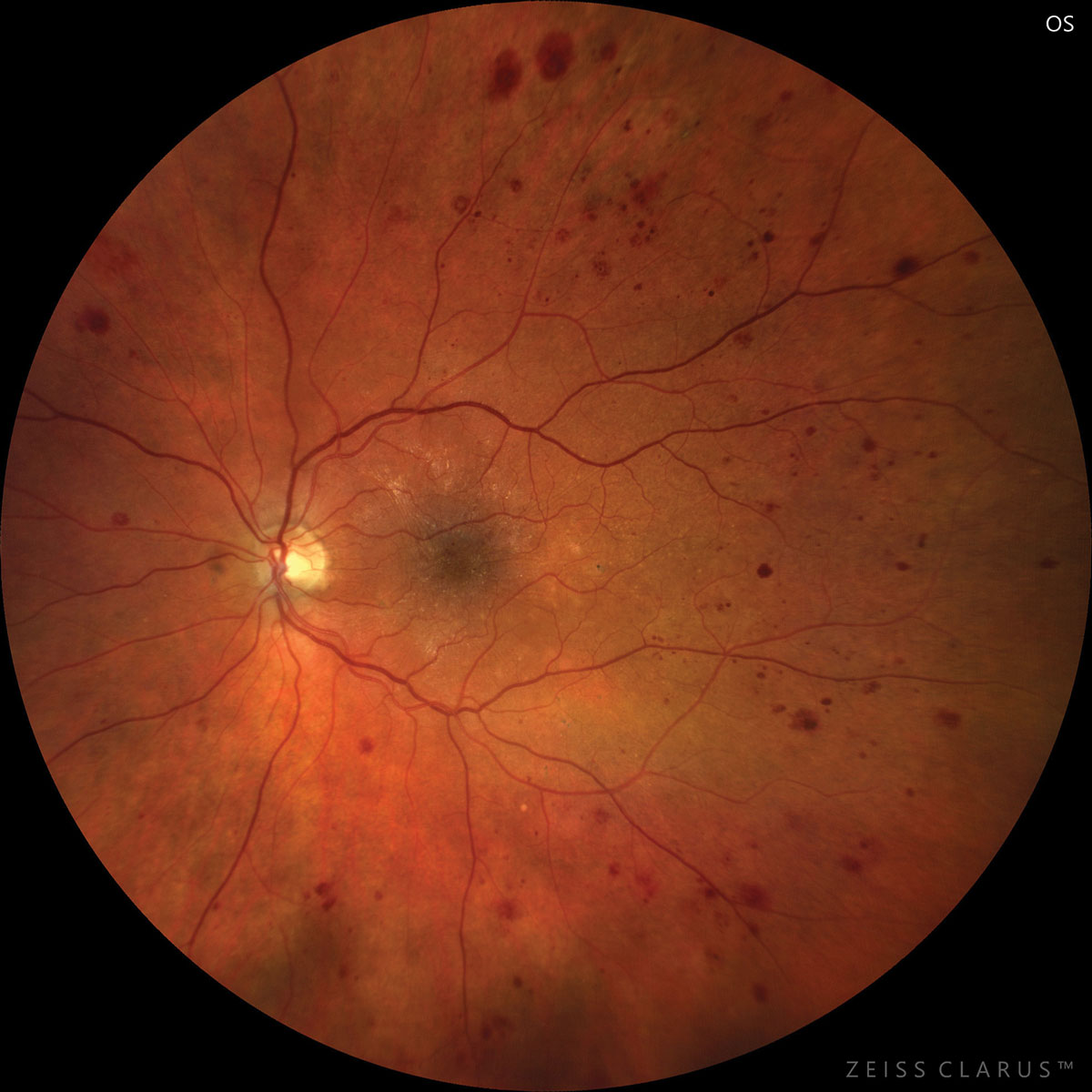 |
|
A blood fatty acid analysis revealed that DHA is inversely associated with presence and severity of DR. Photo: Jay Haynie, OD. Click image to enlarge. |
Few studies have examined the association of individual circulating levels of omega-3 polyunsaturated fatty acids with diabetic retinopathy (DR). Researchers recently examined circulating long chain omega-3 fatty acids both individually and combined, with the presence and severity of retinopathy in individuals with type 2 diabetes. Their study demonstrated that higher levels of docosahexaenoic acid (DHA) and combined eicosapentaenoic acid (EPA)+DHA were associated with reduced odds of retinopathy in a type 2 diabetic population. Furthermore, reduced severity was also observed with higher levels of DHA and EPA+DHA.
The study, published in Retina, assessed a combined population of 1,356 individuals with type 2 diabetes from the Multi-Ethnic Study of Atherosclerosis and Genetics of Latino Diabetic Retinopathy cohorts. Individuals with retinopathy were statistically more likely to be Black or Hispanic, have higher systolic blood pressure, have a higher HbA1c and have urine albumin/creatinine levels >30 compared with those without retinopathy.
Individuals in the fourth quartile of DHA were 17% less likely to have retinopathy compared with the first quartile. Secondary analysis revealed 38% lower severity of retinopathy in individuals in the fourth compared with the first quartile of DHA and EPA+DHA. No significant associations were observed between EPA and retinopathy.
“Collectively, these results suggest circulating omega-3 polyunsaturated fatty acids may exert a beneficial influence on pathophysiology of retinopathy,” the authors concluded in their paper. “Further studies are required to determine whether dietary modifications to increase omega-3 fatty acids might reduce the incidence and/or severity of retinopathy in individuals with diabetes and if so, how these modifications could be tailored to influence cultural dietary norms and/or prevention therapy.”
Weir NL, Guan W, Karger AB, et al. Omega-3 fatty acids are associated with decreased presence and severity of diabetic retinopathy: a combined Analysis of MESA and GOLDR Cohorts. January 30, 2023. [Epub ahead of print]. |


